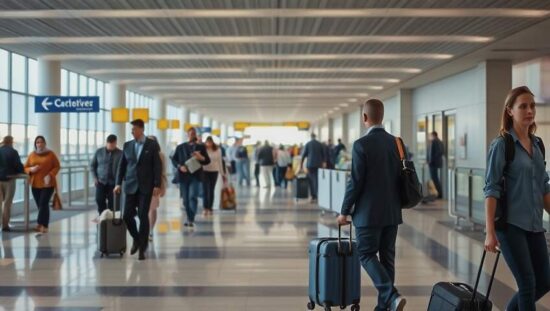A significant labor agreement has been reached between Verdi, Germany’s service sector union and Eurowings, Lufthansa’s subsidiary, securing substantial wage increases and improved benefits for cabin crew. The settlement, announced Thursday, arrives amidst broader anxieties surrounding inflation and the cost of living crisis impacting the aviation sector and its workforce.
The agreement stipulates a total wage increase of 5.4% implemented in two stages. Critically, compensation for irregular flight hours will now be dynamically adjusted with each subsequent tariff increase, a move signaling Verdi’s success in securing a more responsive and equitable compensation structure. Furthermore, the profit-sharing component has been raised to a maximum of €1,600 annually, bolstering the financial participation of cabin crew in Eurowings’ performance. A one-off payment of €1,000 for the 2025 fiscal year is also included, directly linking employee compensation to the company’s profitability.
One particularly noteworthy aspect of the deal is the overhaul of allowances for time spent away from an employee’s home base. The existing cap on daily payments for “abwesenheitsgeld” has been removed, with a roughly 10% increase mandated, a development likely to alleviate financial strain for crew members frequently operating out of their home locations. Additional provisions addressing sickness benefits and other allowances are also incorporated within the comprehensive package.
“This agreement represents approximately €300 more per month in the pockets of Eurowings cabin crew, on average” stated Verdi negotiator Marvin Reschinsky. “This constitutes a considerable real wage increase that we were able to enforce” he added.
However, while lauded as a victory for Verdi and its members, the settlement’s long-term implications remain subject to scrutiny. The deal, valid until July 31, 2027, requires ratification by Verdi members and its acceptance could set a precedent for future wage negotiations within Lufthansa and other German aviation companies. Moreover, experts caution that such increased labor costs could further exacerbate already heightened operational expenses within the airline industry, potentially impacting ticket prices and passenger accessibility. The final ratification vote will be closely watched to gauge the broader sentiment towards escalating labor demands within a sector still recovering from the pandemic’s profound economic impact.





